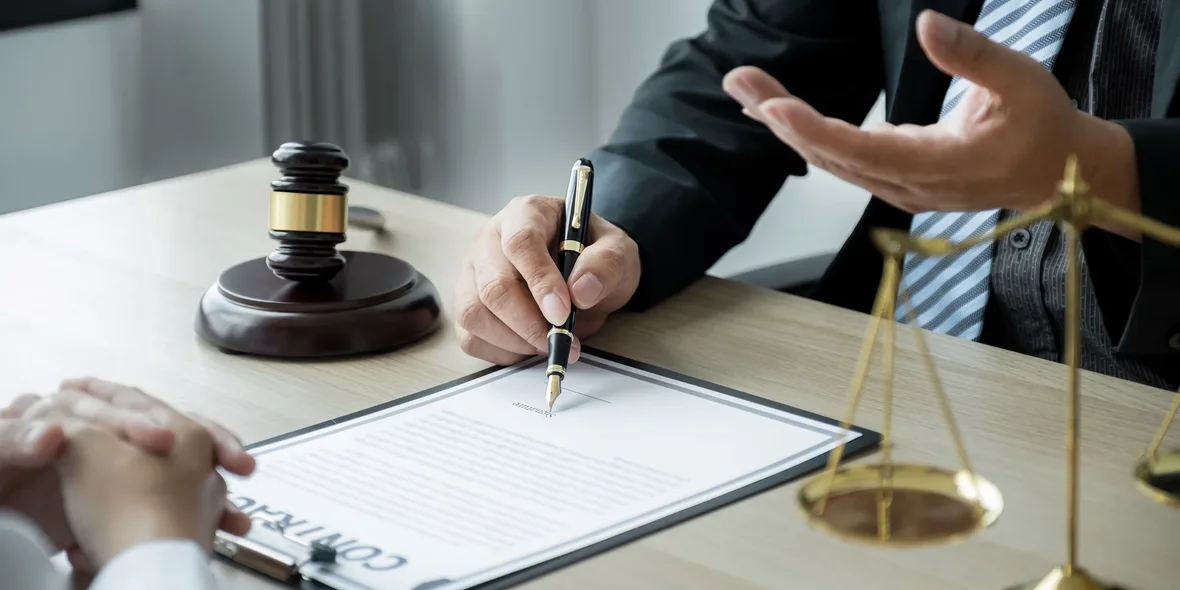
Your Essential Guide to Choosing a Conveyancing Solicitor
Buying or selling a house is one of the biggest financial decisions you will ever have to make. Leaving the legal work to a qualified conveyancing solicitor guarantees a seamless transaction and helps avoid expensive mistakes. For your upcoming home sale or purchase, this extensive guide provides all the information you need to select the best conveyancer or property lawyer.
What is Conveyancing?
Conveyancing refers to the legal transfer of property ownership from one party to another. It involves extensive administrative tasks like verifying the property title, arranging surveys, handling finances, and more. Conveyancers ensure all legal aspects are handled correctly, so ownership legally transfers to the buyer upon completion.
Why You Need a Conveyancer
Trying to handle conveyancing without the assistance of a professional lawyer runs the risk of poorly completed paperwork, overlooked title or property problems, contracts that are not enforced in the event of a dispute, and a great deal of stress. An experienced solicitor will manage all complicated paperwork, advise you on your rights and responsibilities, know exactly what has to happen when, and make sure the process runs smoothly.
Types of Conveyancers
There are a few options when hiring a conveyancing solicitor:
- Sole Practitioner Solicitors: have extensive experience and provide a personalized service, but are typically more expensive.
- Conveyancing Firms: offer streamlined services and online systems at lower prices but have a less personalized touch.
- Licensed Conveyancers: specialize only in conveyancing instead of broader legal issues, with lower overheads allowing competitive pricing.
Duties Your Conveyancer Will Handle
Your conveyancer takes care of practically everything needed to legally transfer homeownership from seller to buyer, including:
- Performing seller background checks.
- Reviewing and advising on the purchase contract.
- Requesting title deeds and other property documents.
- Researching planning permissions or restrictions on the property.
- Carrying out required property searches on flood risk, mining activity, drainage, contamination, etc.
- Preparing transfer deed documentation.
- Liaising with your mortgage lender.
- Advising you on fixtures and fittings included in the purchase.
- Clarifying what items sellers are taking/leaving behind.
- Managing finances and deposits in line with contract timelines.
- Formally exchanging legal contracts between parties.
- Registering you as the new owner with HM Land Registry.
- Paying Stamp Duty tax.
As you can see, attempting to handle all these complex steps without extensive real estate and legal know-how is extremely difficult and risky.
How Conveyancers Charge Fees
Conveyancing solicitors typically charge fees in a few different ways:
- Fixed Fee. A set fee for the entire service allows for reliable budgeting.
- Hourly Rate. Flexible charging by the hour, but costs can quickly increase.
- Percentage of Sale Price. This is common for higher-value properties but makes budgeting difficult.
- Staged Payments. Deposits are required at certain milestones, balancing flexibility and transparency.
Most charge a combination strategy, with small upfront deposits and staged payments once contracts are signed and exchanged. Keep communication open about expected costs before making your hiring decision.
Finding the Best Conveyancing Solicitor for You
With your conveyancer handling so many important legal and financial tasks, you need someone experienced and trustworthy. Follow this advice for finding the best solicitor:
- Verify Credentials and Certifications
Use regulators like the Solicitors Regulation Authority to verify credentials and ensure that they adhere to strict codes of conduct around transparency and client care. - Check Reviews and Recommendations
Online reviews reveal previous clients’ experiences working with conveyancers. Friends who recently purchased property can also provide trustworthy recommendations. - Compare Multiple Quotes
To determine average costs and the best deal, compare the fees and services offered by a few companies. Beware of conveyancers offering unusually cheap deals that may indicate corner-cutting. - Assess Specialist Knowledge
Look for conveyancers specializing exclusively in residential real estate transactions rather than general practitioners covering a wide range of legal issues. This level of specialized expertise is invaluable. - Evaluate Their Communication Habits
Ensure your preferred solicitor provides regular email or phone updates on progress without you needing to constantly chase them. Clear communication is essential for good client service. - Trust Your Gut Instinct.
If a conveyancer seems evasive, unresponsive, disorderly, or disinterested, it may indicate problems ahead. Trust your instincts and seek another solicitor if one does not inspire confidence. Professionalism and transparency are critical.
Questions to Ask Prospective Conveyancers
To determine if a conveyancing solicitor is the right fit for your upcoming transaction, ask these key questions:
- How long have you been handling residential conveyancing transactions? Look for a minimum of 5+ years of experience.
- What specific qualifications do you hold in property law? Relevant advanced certifications indicate specialist expertise.
- What is your typical caseload and availability? Busy solicitors juggling too many cases may not provide adequate attention.
- What communication methods and frequency can I expect? Ensure it matches your preferences.
- What are your upfront and expected total fees? Get complete, written estimates.
- Do you provide conveyancing updates without the client needing to ask? The best solicitors work proactively.
- If issues arise, what support do you provide to resolve them? Gauge their commitment to finding solutions.
- What previous clients have you worked with within my local area? Consider contacting them to inquire about service quality.
By encouraging candid conversation and asking the right questions, you can better determine if a conveyancer has the experience, communication habits, and transparency needed to best guide your next property transaction.

The Conveyancing Process Step-By-Step
While each home sale and purchase has its own unique needs, most residential transactions follow the same general conveyancing process, comprising these key stages:
- Hire your conveyancer.
After having an offer accepted, the first step is to hire your conveyancing solicitor, who will guide you through everything that follows. - The conveyancer receives draft contracts.
Your conveyancer requests the draft purchase contract and supporting documentation, like title deeds, from the seller’s solicitor. - Checks are performed.
Your conveyancer reviews the contract, checks for issues in the title deeds, advises you on the terms, carries out required searches, and more. This is where previously unnoticed issues may arise. - Mortgage set up.
If you need a mortgage, your bank will instruct its solicitor to execute the legal paperwork. Your conveyancer liaises with them on your behalf. - Sign contracts.
Once satisfied with the contract terms and property information, you sign the legally binding documents prepared by your solicitor. - Deposit payment.
At this point, you pay your initial deposit, either directly or via your mortgage provider if you are applying for financing. - Contracts were formally exchanged.
Signed contracts are securely exchanged with your deposit payment between the seller and buyer’s conveyancers. - Setting the completion date.
A completion or closing date is mutually agreed upon by all parties for legally transferring property ownership. This is typically 1–2 months after exchanging contracts. - Funds transferred.
On the completion date, your conveyancer transfers the remaining property purchase funds to the seller. This must be clear before ownership transfers. - Receive property keys.
Once funds are fully clear, the agent releases the keys, signaling completion. You can now move into your new home! - Registration with Land Registry.
Finally, your conveyancer registers you as the new legal owner and files the appropriate tax documents.
While every transaction has unique needs, most follow this general sequence over an average 8–12-week timeframe. Your conveyancer will advise if any variations apply in your circumstances.
Factors Impacting the Conveyancing Timeline
While most transactions take 2–3 months, several variables can impact conveyancing timelines:
- Chain delays: all linked sales in a property chain rely on the slowest transaction, with delays rippling down.
- Mortgage issues: complex mortgages take longer to approve and arrange suitable financing.
- Title problems: errors or ambiguities in property ownership documents can hold things up.
- Search delays: waiting on local authorities, utility companies, and others to furnish search reports adds time.
- Legal disputes, such as contested wills, family ownership quarrels, or boundary arguments between sellers and neighbors, can be time-consuming to resolve.
- Holiday periods: less availability over holidays like Christmas causes some delays.
In a best-case scenario with no snags and all parties cooperating fully, some conveyancing transactions can be completed in 4–6 weeks. However, at the other extreme, some complex cases with serious title issues or chain collapses can take 6–9 months.
Good communication from your conveyancer on expected timelines, depending on your circumstances, allows for better financial and life planning.
Saving Time on Your Conveyancing
Because hold-ups increase costs and frustration, here are some tips for keeping your transaction as streamlined as possible:
- Gathering information early: having ID, proof of deposit, mortgage paperwork, and all required documents ready reduces conveyancing prep time.
- Be mortgage-approved early: arranging mortgage pre-approvals before house hunting gives your conveyancer a head start.
- Respond quickly: promptly provide any other details your conveyancer needs to keep things moving forward.
- Stay flexible: adjust preferred completion dates if needed to align with other parties and streamline the chain.
- Avoid full packs: opting for no furniture packages on completion day makes rescheduling due to delays easier.
- Have a plan B: consider bridge financing or temporary accommodation in case unexpected delays arise.
While it is rarely a fast process, choosing an organized solicitor and staying responsive yourself helps minimize conveyancing timelines.
Saving Money on Conveyancer Fees
Legal fees are a major transaction cost. Use these tips to reduce conveyancing costs:
- Compare Quotes
Getting fee estimates from multiple conveyancers makes cost differences clear. Competitive markets encourage lower pricing. - Avoid Peak Times
Conveyancing fees may increase by 10–15% during extremely busy spring and summer markets as lawyers cover a larger workload. - Discuss Discounts
If quoted an unusually high fee, politely inquire about any discounts that may apply to keep their business competitive. There is often flexibility. - Review Inclusions
Check if conveyancing quotes include all required searches and legal paperwork or if major extras could arise. Predictability helps with budgeting. - Negotiate on Price
Politely question any charges that appear inflated compared to other conveyancer quotes you’ve received. Ask if they can match competitor pricing.
While conveyancing costs aren’t typically exorbitant, for expensive properties, even small savings represent substantial sums. Discussing fees transparently from the start helps avoid nasty surprises down the track.
DIY Conveyancing Warning
Some buyers or sellers consider handling conveyancing themselves to save on solicitor fees, but the risks usually outweigh the small upfront savings. DIY conveyancing dangers include:
- Missing critical legal steps that threaten the sale.
- Inability to enforce contracts if anything goes wrong.
- Failure to notice property defects or ambiguities.
- Difficulty handling complex mortgage arrangements.
- Financial loss from property title or boundary issues.
- Crippling liability if title, tax, or stamp duty problems emerge later.
These savings aren’t worth jeopardizing the biggest investment you may ever make. Expert legal guidance provides essential protection and peace of mind.
Your conveyancing solicitor handles practically every vital legal and financial aspect of your property purchase or sale. Finding an experienced specialist you can trust ensures your transaction is completed smoothly and with full legal protection. Use the guidance in this article to secure the best conveyancer and take the legal complexity out of your next purchase or sale.
FAQs on Conveyancing Solicitors
Do I have to use the same conveyancer as the seller?
How are property solicitor fees typically split between buyer and seller?
Can I meet my conveyancing solicitor in person?
Should I use a local or national conveyancing firm?
How often will my conveyancer contact me?
Is conveyancing slower if I’m in a property chain?
How much information do I need to provide upfront?
What happens if my conveyancer makes a mistake?
Author
I am responsible for editorial work. I write expert interviews and guides.




















